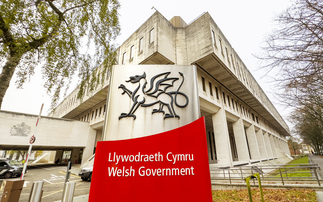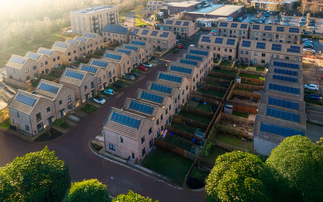From the inspiring to the frustrating, Nathan Goode takes a look at the INDC climate action plans that have been submitted to the UN and mulls the implications for the green economy
Despite the domestic policy anarchy that is presently gripping UK clean energy markets, the team at BusinessGreen are doing a great job of looking outside the bubble and keeping us reminded of the green economy's broader purpose, as COP 21 in Paris approaches.
We have a new acronym for this COP - INDCs, or Intended Nationally Determined Contributions. Every nation state has been asked to produce one for another acronym, the UNFCCC (United Nations Framework Convention on Climate Change, if you're asking).
According to Climate Action Tracker, who are busily reading through them all and rating them, there have at the time of writing been 128 submissions, covering 155 countries, 87 per cent of global emissions and 88 per cent of the global population.
Notable omissions? Fossil fuel producers Angola; Qatar; Iran; Iraq; Kuwait; Nigeria and Venezuela.
Let's cheer the 155 countries who understood the value of early participation in this exercise. Surely to have convinced the overwhelming majority of world governments that they should engage in this way is cause for celebration.
What's in these INDCs? And what is their true purpose? Broadly, each country was expected to make a commitment on climate change mitigation, with many opting for an unconditional commitment and a higher conditional commitment, the latter contingent on international support. Many countries also wanted to talk about adaptation and argued this should be considered as part of a sensible overall strategy for dealing with climate change.
The 28 EU countries lined up behind a single submission.
Beyond the basics, countries seem to have interpreted the brief in a number of different ways, although there are common themes. The divide between developed and developing countries, for instance, is clearly marked. There is a strong message that the effects of climate change are already being felt. The word "fair" is used a lot, but of course it is not in anyone's interest to try and define what that really means.
Length doesn't equate to quality, but of the 25 I've read so far, the longest was 51 pages (Burkina Faso) and the shortest was three pages (Australia). Both China and India weighed in with fairly lengthy submissions; the EU opted for short and functional, sticking to just five pages covering the basic mitigation commitments being made. Incidentally, tucked away deep in China's 36 page submission is a commitment "to let media play the role of supervision and guidance". I guess we'll have to see how that one goes.
UNFCCC set a deadline of 1st October for submission of INDCs, so they could produce a synthesis ahead of the conference. That synthesis, a heroically comprehensive 66 pages long, was released on 30th October. UNFCC no doubt wanted to get their calculators out early and start totting up the commitments so they could present a global picture well ahead of COP21.
However, many submissions devoted significant space to adaptation as well. South Africa, for instance, covered adaptation before mitigation in their submission and avoided any specific mitigation target.
The tension between nations who have already grown and those who want to grow is evident in many submissions, not least in India's, which declares: "While a few fortunate fellow beings have moved far ahead in this journey of progress, there are many in the world who have been left behind."
Or, as South Africa puts it: "The nature of the climate change challenge is one characterised by the overuse of a global commons in an unequal world."
We need to move past the rhetoric. The Indian submission also notes that it should not be presumed that future growth also has to come at the cost of the environment. And it takes the trouble to list out a whole series of initiatives: 100 Smart Cities, 63GW of nuclear power by 2032, the two per cent Corporate Responsibility levy and (one that I particularly like) a plan to plant 140,000km of trees along India's roads, to name but a few.
Scientifically speaking, measuring outcomes from the mitigation commitments is an important primary driver over the coming decade and a half, but to ignore the context within which these commitments are being placed would be to miss the multiple purposes for which the INDCs are written.
In any case, how are developed nations going to be held to account for their supposedly binding commitments? There is certainly nothing in the EU's submission, for example, that would allow anyone to challenge them on their mode of delivery.
I wondered at the minimalist EU INDC strategy. I don't think climate change leadership can be reduced to a single number.
Although there is a lot of similarity of language between many submissions (at times bordering on the formulaic), there is also some rich diversity of insight and narrative. Who could fail not to be moved by Suriname, where 94 per cent of the country is forested, their economy squeezed into a coastal strip - when the sea-levels rise, they ask, do they move inland and cut down the forests?
"Based on current trends", says Suriname's submission, "climate departure for Suriname will take place in 2028". That's 13 years from now.
There are some eye-catching pledges. The Philippines, a 100 million-strong nation horribly exposed to climate change, pledges a stunning 70 per cent reduction in GHG emissions against the baseline. Some are less inspiring. The UAE, home to Masdar, could perhaps be given credit for submitting something at all, which is an improvement on many of their neighbours, but their five-pager is short on detail and even shorter on firm commitments. Unlike Togo, for instance, who committed to 11 per cent GHG reductions unconditionally and to 31 per cent with external support.
That the language at times is obscure is not surprising. I particularly appreciated the effort from Russia to avoid the slightest whiff of a commitment.
UNFCC has signalled that there are significant discrepancies in the base assumptions for the individual INDCs, making a composite picture difficult. For example, many of the commitments are against a rising Business-as-Usual scenario. In other words, they are not absolute reductions; rather they are relatively less bad scenarios than a "do nothing" option. Turkey, for example, commits to "up to" a 21 per cent reduction in GHG emissions, but that still involves CO2 emissions rising from 430 million to 929 million tons of CO2e.
Too much emphasis on the mitigation numbers and one might start to think that failure is assured. I think the diagnosis should be more nuanced. Overall, I find these INDCs incredibly enlightening, in all their aspects, qualitative and quantitative, flaws and all. There are narratives and perspectives that need to be allowed through. Although the headline cry accompanying the issue of UNFCC's report was, predictably, "not enough!", the UNFCCC synthesis also captured some of qualitative messages, as well as just processing the figures, albeit not in a particularly digestible form. UNFCCC, in its synthesis says: "The increasing determination of Parties to take national action to combat climate change together with an increasing national capacity to do so is clearly manifested through the significant number of Parties submitting INDCs and their enhanced scope of action."
I take heart from that. Perhaps we should leave the last word to China, as in reality it will have it anyway. "A thousand mile journey", it said in its INDC, "starts with the first step".
Nathan Goode is director at Aventia Consulting Limited
This article is part of BusinessGreen's Road to Paris Hub, hosted in association with PwC








